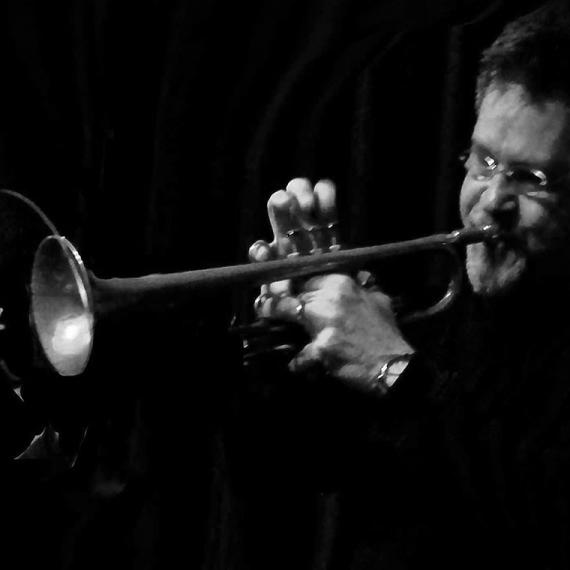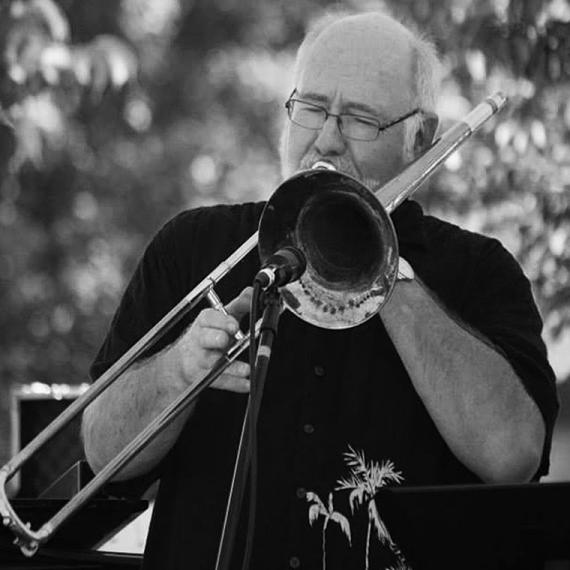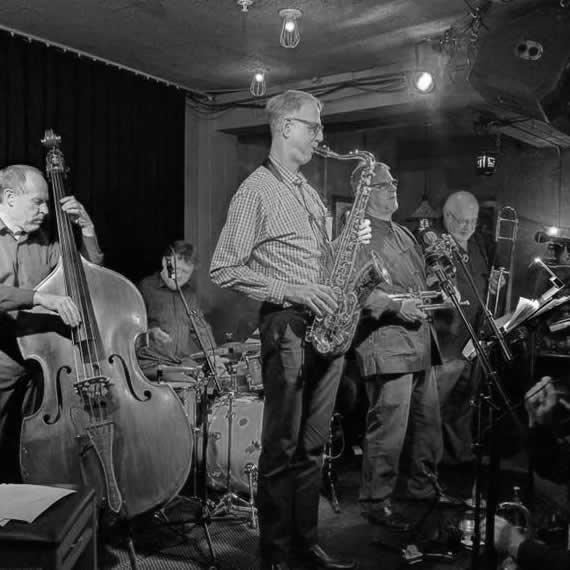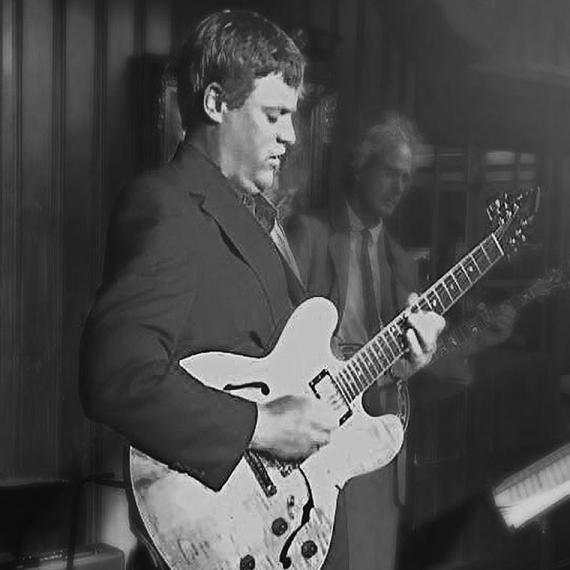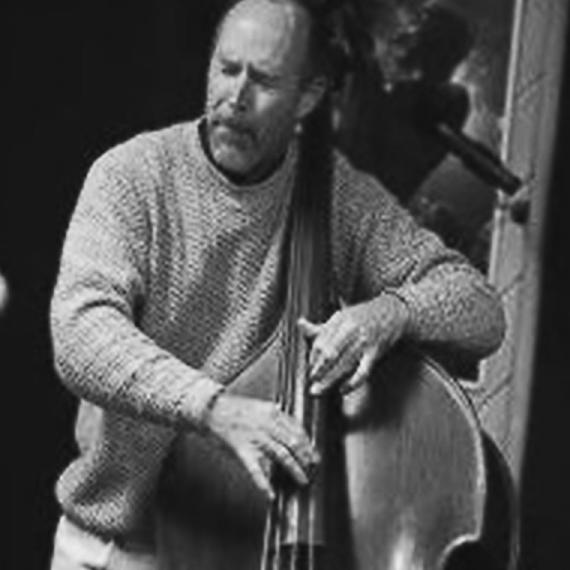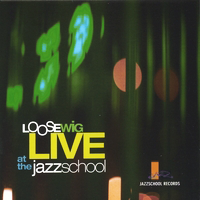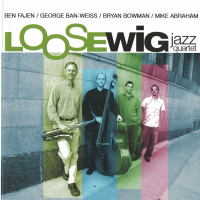While LooseWig is currently a sextet based in Portland, Oregon, back in 2004 when it was a new band, the quartet consisted of tenor-saxophonist Ben Fajen, guitarist Mike Abraham, bassist George Ban-Weiss and drummer Bryan Bowman. From the start, the band had its own sound, featuring plenty of close interplay between the four musicians along with solos that were both explorative and swinging.
The group’s debut recording, which is simply called LooseWig, has not dated or lost its vitality in the slightest. It is quite enjoyable hearing what was really the birth of a band as LooseWig stretches out on 11 diverse compositions.
The set begins with “Black Narcissus,” one of several numbers heard on this CD that are associated with Joe Henderson. Henderson and to a lesser extent Michael Brecker and Hank Mobley are influences on Ben Fajen although, even in 2004, he already had his own sound and approach to playing modern post-bop jazz. His solo on “Black Narcissus,” with guitarist Abraham riffing behind him along with the active rhythm section, is a highlight.
Bryan Bowman’s “Mars Passing” is most notable for the very original tone of Abraham and the way his playing is quite complementary to Fajen’s. “Blues In 5” is not strictly a blues (it is more like an extended and augmented “Summertime”) but it is in 5/4 time and is a bluish exploration. “Soul Cowboy” is actually a blues, a swinging performance that gives all four musicians opportunities to shine.
The whimsical waltz “Ju Ju” has some fairly free improvising and interplay. The band somehow sounds effortless on Bowman’s tricky melody line to “Like Minds” which precedes a tasteful interpretation of Thelonious Monk’s “’Round Midnight.” A pair of Joe Henderson compositions, “Inner Urge” and “Isotope,” inspires inventive yet mostly melodic solos along with many heated moments. As if its chord changes are not challenging enough. LooseWig takes John Coltrane’s “Giant Steps” as an uptempo jazz waltz, an unusual treatment that inspires some highly original solos. This impressive debut concludes with a straightforward guitarless trio version of “All The Things You Are.”
LooseWig’s first recording, which is filled with top-notch jazz improvising and strong melodies, was not only a strong start for the group but resulted in an easily recommended set of timeless jazz.
Scott Yanow, jazz journalist/historian


